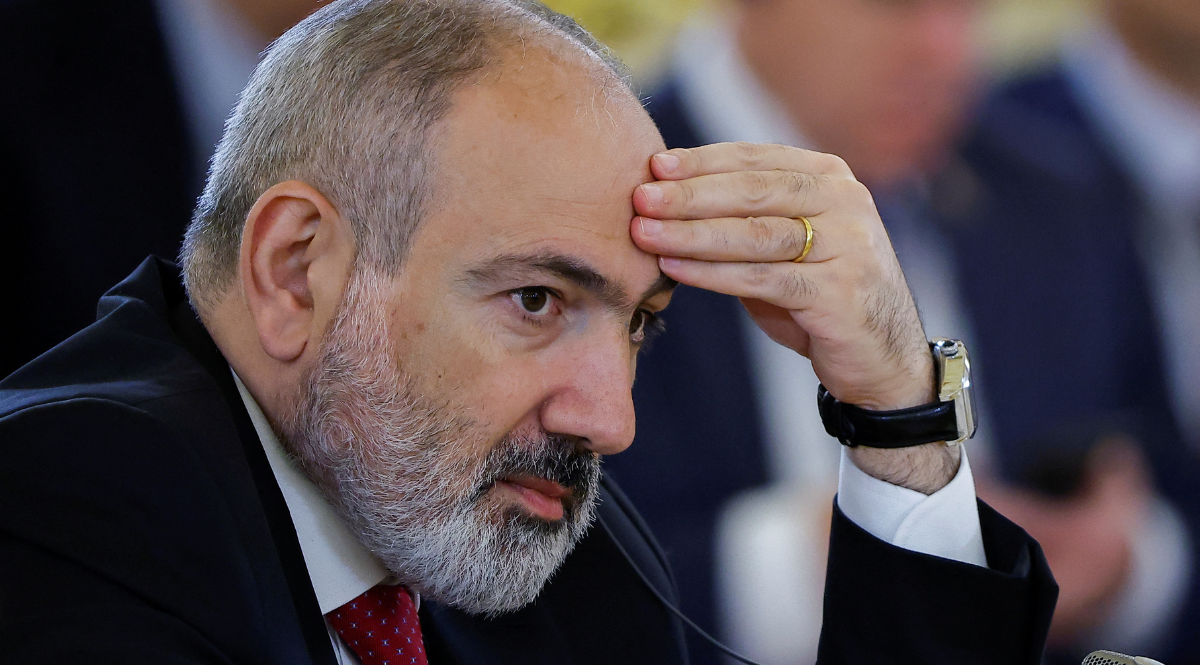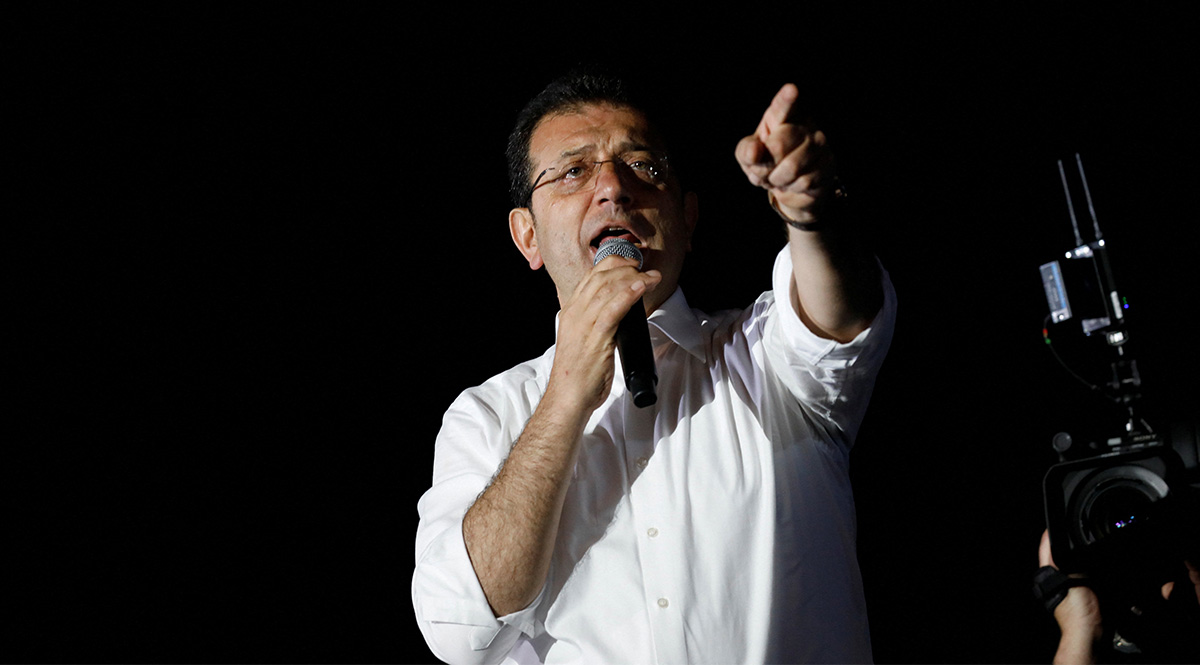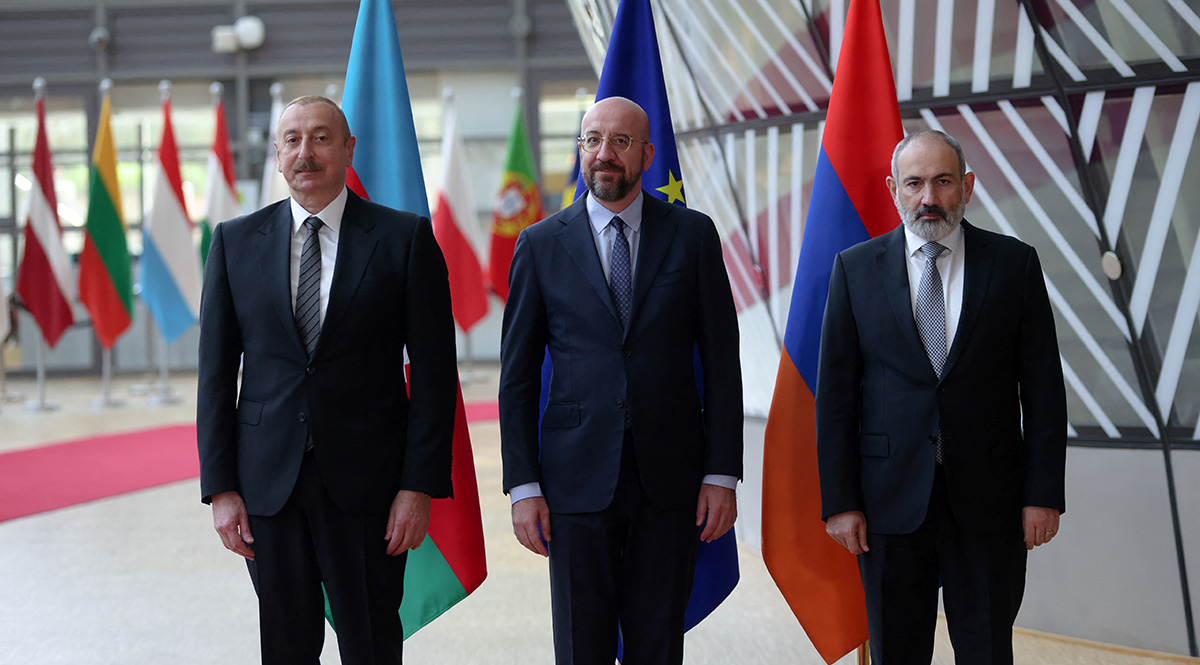Prospects for the Normalisation of Turkish-Armenian Relations Improving
The fifth round of negotiations between Türkiye and Armenia, held on 30 July, offers hope for an acceleration of the normalisation of their relations, including the opening of borders between the countries. However, the success of the negotiations depends on the settlement of Armenia’s relations with Azerbaijan. Such an agreement would unblock transport routes in the South Caucasus region, as well as increase the presence of the EU and Poland in the region.
 Evgenia Novozhenina/Reuters
Evgenia Novozhenina/Reuters
At the end of July this year, the special representatives for the normalisation process between Türkiye and Armenia, Ambassador Serdar Kılıç and Deputy Chairman of the Armenian National Assembly Ruben Rubinyan, held their fifth bilateral meeting at the border of the two countries. The talks between the sides resumed after a break of more than two years—Kılıç and Rubinyan met last in July 2022. The break was due to Türkiye’s resistance to Armenia’s demands that the consultations take place with the participation of third parties interested in opening the Armenian-Turkish border. Since 1993, the crossing between the countries has been opened only once, for Armenian aid to earthquake victims in Türkiye.
Reasons for the Difficult Turkish-Armenian Relations
Türkiye and Armenia, which became a sovereign state after the collapse of the USSR in 1991, have not established diplomatic relations to this day. In 1993, Türkiye imposed an economic blockade against Armenia and closed its borders with it. This was mainly due to the Armenian-Azerbaijani conflict over Nagorno-Karabakh (NK), in which Türkiye sided with Azerbaijan. After Azerbaijan lost the First Nagorno-Karabakh War (1992-1994), Türkiye made the change of its position conditional on Armenia ending its occupation of Azerbaijani lands (the NK and seven oblasts around it). As a result, Armenia has remained partially isolated economically and politically in the region for the last three decades and excluded from the system of natural resource transportation and transfer routes developed mainly with Turkish participation. It trades only through Georgia and Iran. For more than 30 years, its security was based on an alliance with Russia, but this is changing due to Russia’s passive stance in the 2020-2023 conflict over the NK.
Turkish opposition to Armenian demands for recognition of the 1915-1917 mass slaughter of Armenians within the Ottoman Empire as genocide remains an enduring issue. The Turkish authorities refuse to qualify it in this way, fearing demands for compensation from Armenia. Another problem from the Turkish perspective is the potential territorial claims contained in the preamble to Armenia’s constitution, according to which the Armenian authorities aim to unite all historically Armenian territories. Indeed, today’s eastern Anatolia (so-called Western Armenia), which was ceded to the Turkish side under the 1921 treaty between the USSR (of which Armenia was part as a Soviet republic) and the Ottoman Empire, could be considered such.
First Attempts at Normalisation
With the Justice and Development Party (AKP) coming to power in Türkiye in 2002, Turkish policymakers took a positive approach to establishing diplomatic relations with Armenia. This was a manifestation of the new Turkish foreign policy concept of improving Türkiye’s relations with neighbouring countries. This was reflected in the normalisation process, or so-called “soccer diplomacy”. The name refers to the meeting of politicians from both sides on the occasion of matches played by the national soccer teams in the 2010 FIFA World Cup qualifiers. The process included a visit by then-Turkish President Abdullah Gül to Armenia in 2008, followed by a visit by his Armenian counterpart Serzh Sargsyan to Türkiye. As a result, the foreign ministers of the two countries signed two protocols in Switzerland in 2009 on the establishment of diplomatic relations and the development of bilateral relations. The documents were intended to be a roadmap for ending the disputes and developing bilateral relations by establishing diplomatic relations, setting up a joint commission of historians on the genocide issue, and opening the border.
However, the process of ratifying the protocols failed. In 2015, the Armenian president withdrew from it, citing a lack of political will on the part of Türkiye, where the normalisation process provoked resistance from nationalist circles. Azerbaijan’s opposition to Türkiye establishing diplomatic relations with Armenia and opening the border before the latter’s withdrawal from the occupied territories was also a reason for the failure of the protocols. Relations further deteriorated as a result of Türkiye’s provision of training and equipment support to Azerbaijan during the Second Nagorno-Karabakh War in 2020. Although its end was associated with increased diplomatic efforts to resolve the conflict between Armenia and Azerbaijan, the parties still have not signed a peace treaty, which prevents the settlement of regional transportation issues and slows the progress of Turkish-Armenian talks.
New Attempt at Normalisation
Azerbaijan’s recapture of territories controlled for nearly three decades by Armenia (first in the fall of 2020, comprising a third of the territory of NK and seven regions around it, then last September the rest of it) weakened its opposition to the normalisation of Turkish-Armenian relations. As a result, there were four meetings between Turkish and Armenian representatives in 2022 on the subject of establishing formal diplomatic relations and opening the borders. Although the parties’ representatives agreed on the issue of opening the borders to third-country nationals (they are to talk about its unblocking for their own citizens at a later stage) and discussed allowing mutual transportation of cargo by air, according to the Armenian authorities, these were not implemented due to the passivity of the Turkish side. Despite the good atmosphere of the talks and the desire to continue them, the parties did not make much progress, as the Turkish authorities were most likely waiting for progress in the Armenian-Azerbaijani peace negotiations. The initiated normalisation was also accompanied by events of symbolic importance, such as a meeting of the heads of Turkish and Armenian diplomacy at the 2022 Antalya Diplomacy Forum and the participation of Armenian Prime Minister Nikol Pashinyan in the swearing-in ceremony of Turkish President Recep Tayyip Erdoğan for another term last year.
During their fifth meeting, held in July this year, the representatives of Türkiye and Armenia agreed to make the technical assessment needed to reopen the Akyaka-Akhurik railroad crossing. In addition, they concluded an agreement on rules for the issuance of diplomatic passports, which can be used during official visits to both countries by lower-level diplomats. The parties expressed their willingness to continue the normalisation process without any preconditions, but did not give a date for the next bilateral negotiations, which can be explained by the caution of both sides and reckoning with the reluctance of part of the public and Turkish and Armenian political circles (especially the Armenian diaspora and nationalist forces in Türkiye).
Conclusions and Outlook
From Armenia’s perspective, the main motivation for continuing the process towards the normalisation of relations with Türkiye is the chance to emerge from regional isolation. This is because Armenia sees joining regional energy and transportation projects implemented with Türkiye as part of its independence from Russia and Iran.
For Türkiye, the establishment of diplomatic relations with Armenia is intended to be part of expanding its influence in the South Caucasus. Its normalisation efforts allow it to strengthen its image as a state whose involvement is essential for the region’s stability and, consequently, for its economic development. In this context, resolving disputes with Armenia would allow Türkiye to increase trade with Azerbaijan and Central Asian countries by opening new transport routes. However, the process of normalisation of Turkish-Armenian relations is closely linked to the settlement of Armenia’s relations with Azerbaijan, which is also necessary for the unblocking and development of trade routes in the South Caucasus.
Turkish-Armenian normalisation would therefore be fostered by supporting peace talks between Armenia and Azerbaijan. During its presidency of the EU Council, which will begin in the first half of 2025, Poland could encourage the other Member States to continue Charles Michel’s initiative in this regard. In the long term, this would increase stability in the South Caucasus, reduce Russia’s influence, and strengthen the presence of the EU and Poland in the countries of the region, which would benefit economically and commercially from the opening of new transport routes in the area.






.png)